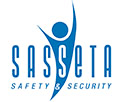Skills Programmes
A skills programme is a unit standard or combination of unit standards that leads to an employable skill, and earns a credit on the National Qualifications Framework (NQF) towards a qualification.
Skills programmes are compiled by employers or providers once a need for a particular skill has been identified. These programmes are registered with the SETA, and must be certificated through the NQF-based accreditation route (the same quality assurer who certifies the full qualification of which these standards are part must certify the skills programme).
Prior to registering a skills programme, the SETA will assess whether:
- There is a need for the proposed skill/s in the labour market as well as in the locality;
- There is evidence of the learnership (or qualification) to which the skills programme will ultimately contribute;
- The combination of unit standards are recognised in the context of an area of learning that eventually forms a learnership;
- A career path or sufficient employment opportunities exist for the learner;
- Links exist with general education requirements as well as formal qualifications (i.e. skills programmes must align clearly with formal education systems as well as with any other unit standards that may not form part of the package initially e.g. communication and numeracy).
Learnerships versus Skills Programmes
| Learnerships | Skills Programmes |
| Formally registered via a SETA with the Department of Labour | Formally registered or recorded by a SETA. * this procedure has yet to be finalised |
| An integrated learning programme delivered according to a pre-determined curriculum | Need to comply with a clearly described structure – unit standards, outcomes etc. |
| Usually completed as stand-alone units. | Components of a learnership may be completed as a skills programme, e.g. by learners who require specific skills but who do not wish or need to complete the full learnership.
Learners would gain credits towards a learnership by completing parts as skills programmes |
| Has a minimum of 120 credits on the National Qualifications Framework (NQF). Maximum number not specified. | Number of credits not specified, provided that the programme includes at least one full unit standard. A skills programme may also be developed around a cluster of unit standards that make up a skills cluster relevant to an occupation. |
| At least 10 to12 months in duration, as 120 credits represents 1 200 notional hours of learning. | Duration not fixed and can vary widely depending on the time required to achieve the specific outcomes. |
| Requires a formal Learnership Agreement involving the learner, the employer and the provider. | Relationship between institutional and workplace learning is usually not formally described. |
| The relationship between, and integration of institutional and workplace learning is usually clearly set-out in the description of the learnership and/or its learning programme |
